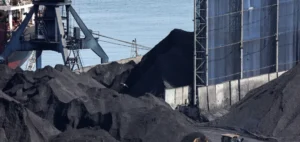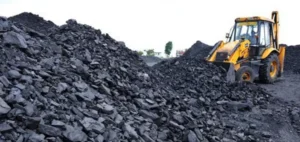The derailment of Train 6000, maneuvering at VHO, has led to the closure of both rail lines until further notice. Transnet Freight Rail, the main logistics operator for South African exports, has not given a deadline for restoring services. This derailment comes at a time when South African thermal coal exports to India are holding steady thanks to stable demand from the Indian sponge iron sector.
Impact on coal prices
South African thermal coal prices are set to rise in the short term due to uncertainties surrounding the resumption of rail services. According to S&P Global Commodity Insights, the price of Richards Bay FOB coal at 5,500 kcal/kg NAR reached $93.95/mt on May 20, up $1/mt since May 17. Pranay Shukla, head of bulk freight and commodities research at Commodity Insights, estimates that the derailment could reduce thermal coal shipments by 700,000-800,000 mt this month, lowering the Richards Bay Terminal (RBCT) shipment forecast from 4.5-4.8 million mt to 3.8-4.0 million mt.
Stock analysis and market outlook
Coal inventories at the RBCT fell from 2.2 million mt the previous week to 2.1 million mt on May 20. However, this price rise may not last, as Indian demand is set to slow as the monsoon season approaches. The absence of European demand has enabled price-conscious Indian buyers to increase their purchases of South African thermal coal, accounting for almost 50% of total exports.
Market reactions and future impact
Some market participants believe that Indian demand will not be sufficient to keep prices high. An India-based trader said that sponge iron prices and the onset of the monsoon season are reducing demand. An American trader specializing in South African thermal coal added that, with demand from India low, the derailment was unlikely to have a significant impact on the market. Similar incidents in 2023 did not result in a major drop in South African exports, suggesting that the current impact could also be limited.
The derailment in South Africa could temporarily disrupt thermal coal exports and cause prices to rise. However, fluctuations in Indian demand, combined with the historical stability of exports despite similar incidents, suggest that the long-term impact could be limited.






















